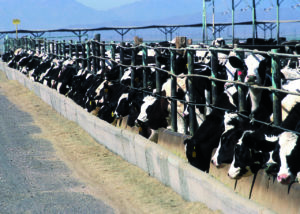Meatpackers Push Back on Plans to Reintroduce Meat Drug Additive
The public needs to understand that an additive used by industry to fatten cattle up before slaughter has been banned by China, Russia and the European Union. What do they know that the U.S. doesn’t?
The drug is called Zilmax and it’s made by Merck & Co. Last year Merck pulled Zilmax from the market after meat processors reported that animals were going to slaughter unable to walk or stand. Cargill and JBS, major meatpackers, said they were concerned about the animals. They most likely were just as concerned about the sale of beef, especially to restaurants and large wholesalers such as Costco, which didn’t want to buy beef from cows treat with Zilmax.
Zilmax is an animal drug, approved in 2006 by the Center for Veterinary Medicine (CVM), part of the U.S. Food and Drug Administration (FDA). The FDA reports meat from treated animals is safe for human consumption, but the FDA approved it as an animal drug. We must rely on the drug maker, the company with the most to gain, that meat from disabled animals is safe for humans.
Feedlots mix Zilmax into cattle feed just before slaughter to promote lean muscle instead of fat which can add up to 33 pounds of weight to the animals. That brings additional profits to meat producers. Corn used to be used for this purpose but as the price of corn rose drugs have taken the place of corn.
Zilmax was used on about 25 million cattle before August 2013, when sales were suspended.
The Wall Street Journal reports about 70 percent of U.S. cattle received Zilmax, or another drug Optaflexx (Eli Lilly), after Zilmax was taken off the market by Merck.
Now the drug giant wants to reintroduce Zilmax to the market. Merck had plans to test the drug on about 250,000 cattle that would be sold to the public after slaughter. Not only has the public expressed its resistance to the drug but the meatpackers are again concerned about the harm to sales. Merck had hoped to run randomized control study on about 250,000 animals this summer but without support from the meatpackers those plans are on hold.
Zilmax and Optaflexx are considered a beta-agonist or growth promoting agent. Traditional non-organically grown beef is also fed antibiotics to offset the dirty conditions of a feedlot. About 90 percent of U.S. grown beef are fed antibiotics and the FDA has not yet moved to limit their use, even with evidence that antibiotic-resistant strains of bacteria are being seen in Americans. Beef cattle in the U.S. are also implanted with steroid hormones that increase growth rates and the lean muscle.
While Merck has to cool its heels, the drug company, Zoetis Inc., has sought and received approval of its animal drugs – Endogain for pigs and Actogain for cattle. Public perception will at least partially determine the destiny of those growth-promoting drugs as well.
Share This



